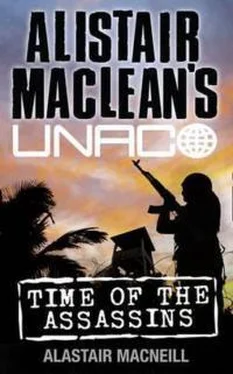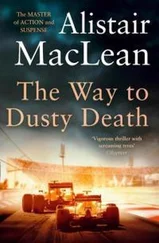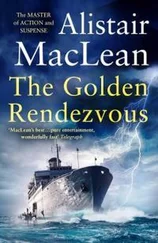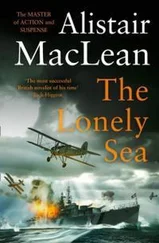He trod on the brake pedal as they reached the first of the numerous roadblocks that lined the city streets. It consisted of a sheet of rolled barbed wire that lay the width of the road. Four men stood beside it, all in jeans and T-shirts, and all armed with kalashnikov assault rifles. One of the men approached the driver’s side of the ambulance, the kalashnikov clenched tightly in his right hand.
‘Where are you going?’ he demanded.
‘There’s been an accident on the M3,’ Nhlapo replied. ‘A car went off the road.’
The man nodded, having already received word of the call-out by the controller at the hospital. The ambulance was searched for any weapons or contraband that the crew may be trying to smuggle past the roadblock but nothing was found.
Satisfied, the man returned to the driver’s window. ‘You’ll be given a free passage through to the last roadblock on the outskirts of the city.’
‘I know the drill by now,’ Nhlapo retorted tersely.
The man nodded to his colleagues and the barricade was pulled back until there was just enough room for the ambulance to get through. Nhlapo engaged the gears and sped off. They passed another four roadblocks, each time being waved through by an armed guard. They were stopped, as expected, at the last one on the edge of the city. Again the ambulance was searched before being allowed to continue.
Nhlapo drove the short distance to join the M3. It was eerie and deserted. The resistance movement had shot out most of the lights to give them the cover they had needed to launch a series of lightning strikes on rebel patrols in the area. The gutted remains of rebel vehicles on the side of the road were testament to the success of the mission. Over thirty rebels had been killed in the ambushes before Ngune pulled his men back to within the confines of the city. He had immediately reinforced the roadblocks on the edge of the city with both men and weapons to repel any attempt by the resistance movement to retake Kondese, but a succession of arrests and summary executions in the last fortnight had left the resistance movement disjointed and demoralized. They couldn’t launch an offensive on Kondese without the backing of the government forces. And they seemed determined to wait for Ngune to make the first move…
Vuli pointed to a figure in the distance who was frantically waving a white handkerchief to attract their attention. Nhlapo switched off the siren as he neared the man then pulled over onto the side of the road, bringing the ambulance to a halt a few feet in front of him.
‘Did you call the hospital?’ Nhlapo asked after he had jumped out of the ambulance.
‘Yes,’ Tambese replied, pocketing the handkerchief.
‘This is such a treacherous stretch of road,’ Nhlapo said.
‘Especially at night,’ Tambese added.
‘Or in the rain,’ Vuli said, completing the password they had agreed with Okoye when he had called them earlier at the hospital. They didn’t know Tambese’s name and he didn’t know theirs. It was a precaution in case any of them were arrested by the Security Police. That way the damage would be minimal.
‘What’s the plan?’ Nhlapo asked.
‘You get us past the roadblocks. That’s all you need to know.’
‘How many are you?’
‘Three,’ Tambese replied then put two fingers in his mouth and whistled loudly.
Laidlaw was the first to appear. He was carrying a doctor’s black bag which Okoye’s wife had lent him.
She had a surgery in the city. Vuli gasped in shock when Graham and Sabrina emerged from the undergrowth behind him. Okoye’s wife had spent over an hour making them up to look as though they had been involved in a car crash. Their faces and clothes were splattered with sheep’s blood and both had discoloured ‘bruises’ on their faces which she had carefully shaded with an eyebrow pencil.
‘It’s make-up,’ Tambese reassured Vuli and Nhlapo.
‘It’s very realistic,’ said Vuli.
‘That’s the general idea,’ Tambese told him. ‘We have to get them through the roadblocks.’
Graham crossed to where Laidlaw was standing. ‘You know what to do?’
Laidlaw bit back his anger and nodded. ‘Take the car back to the farmhouse and wait for your call. I still say I could be of some use–’
‘No!’ Graham cut in quickly. ‘We’ve been through this before, Russ. I need someone I can trust at the farmhouse to call New York in case something should go wrong.’
‘Moredi’s there,’ Laidlaw shot back.
‘He doesn’t know Sabrina and I work for UNACO. You do. If you haven’t heard from us by daybreak, call the number I gave you.’
‘And speak to a guy called C.W. Yeah, I know.’
‘Ready, Mr Graham?’ Tambese asked.
Graham nodded.
Laidlaw handed the doctor’s bag to Tambese then looked back at Graham. ‘You watch yourself, you hear?’
‘Yeah,’ Graham muttered then walked over to the ambulance.
‘What about this?’ Sabrina asked, indicating the holdall she was carrying. It contained the three Berettas, three silenced Uzis, the spare ammunition clips and the holsters that Tambese had drawn from the barracks in Habane. Okoye had made the necessary arrangements to have the sniper rifle, silencer and blowtorch left for them near the city hall by a member of the resistance movement.
Graham looked at Tambese. ‘Well, where do we put it?’
‘We can’t put it in the ambulance like that,’ Tambese replied. ‘They’d be sure to see it.’
‘What do you suggest?’ Sabrina asked.
Tambese clambered into the back of the ambulance. ‘Pass me the holdall.’
Sabrina handed it to him. He unzipped it and tipped the contents out onto one of the stretcher beds.
Then, pulling back the top sheets on both stretcher beds, he carefully laid the weapons, holsters and clips down the centre of the two mattresses before remaking the beds again.
‘So we’ll be lying on them?’ Graham said.
Tambese nodded.
‘It’s the first place they’ll look,’ Graham shot back.
‘Had you been locals, yes,’ Tambese replied. ‘But you’re foreigners. And you’re posing as journalists. Those things can make a lot of difference right now.’
Graham scrambled into the back of the ambulance and sat on one of the beds. ‘Why should they make a difference?’
‘Because I’ll tell the rebels that you were attacked by government troops outside Kondese. They’re sure to see the potential of a major publicity coup if they were to get you the best possible medical care. And that would mean giving the ambulance a free passage to the hospital. It would be too good an opportunity for them to miss.’
‘And if they don’t fall for it?’ Graham asked.
‘Then we’re in trouble,’ Tambese replied, reaching out a hand to help Sabrina into the back of the ambulance. He told Vuli in Swahili to leave all the talking to him. He also told him to knock on the glass partition when they neared the first of the roadblocks. Vuli nodded then closed the back doors and climbed back into the cab.
Nhlapo started up the engine then wiped a drop of sweat from his face. ‘God help us if they find those guns.’
Vuli glanced at Nhlapo and shook his head slowly. ‘Not even He could help us then.’
Nhlapo swallowed nervously and did a U-turn before heading back towards Kondese.
Vuli rapped loudly on the glass partition when the roadblock came into view. Nhlapo instinctively touched the brake pedal when one of the rebels stepped out into the road to wave down the ambulance.
Vuli patted Nhlapo’s arm reassuringly then reached for the clipboard on the dashboard. It contained details of the ‘accident’ which Vuli had copied down, almost word for word, from the summary Tambese had compiled before leaving the farmhouse. Ngune had insisted that the ambulance service make a report of any incident that took them beyond the roadblocks on the edge of the city. That was considered no-man’s land by the rebels. It was certainly a major victory for the resistance movement. And it was only the beginning, Vuli told himself…
Читать дальше












